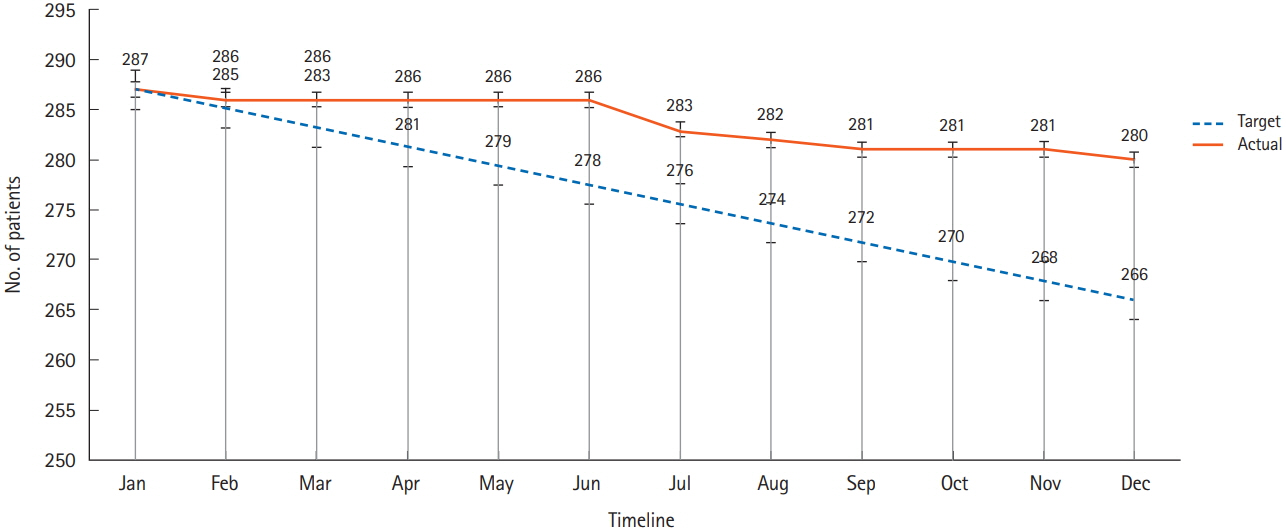Intest Res.
2019 Jan;17(1):1-5. 10.5217/ir.2019.00005.
A new opportunity for innovative inflammatory bowel disease research: the moderate-to-severe ulcerative colitis in Korea (MOSAIK) cohort study
- Affiliations
-
- 1Center for Crohn's and Colitis, Department of Gastroenterology, Kyung Hee University College of Medicine, Seoul, Korea. hjkim@khmc.or.kr
- 2Department of Internal Medicine, College of Medicine, The Catholic University of Korea, Suwon, Korea.
- 3Department of Internal Medicine, Kangbuk Samsung Hospital, Sungkyunkwan University School of Medicine, Seoul, Korea.
- 4Department of Internal Medicine, Ewha Womans University College of Medicine, Seoul, Korea.
- 5Department of Gastroenterology and Hepatology, Korea University College of Medicine, Seoul, Korea.
- 6Department of Internal Medicine, Eulji General Hospital, Eulji College of Medicine, Seoul, Korea.
- KMID: 2438436
- DOI: http://doi.org/10.5217/ir.2019.00005
Abstract
- No abstract available.
Figure
Reference
-
1. Yang SK, Yun S, Kim JH, et al. Epidemiology of inflammatory bowel disease in the Songpa-Kangdong district, Seoul, Korea, 1986-2005: a KASID study. Inflamm Bowel Dis. 2008; 14:542–549.
Article2. Kim HJ, Hann HJ, Hong SN, et al. Incidence and natural course of inflammatory bowel disease in Korea, 2006-2012: a nationwide population-based study. Inflamm Bowel Dis. 2015; 21:623–630.
Article3. Jung YS, Han M, Kim WH, Park S, Cheon JH. Incidence and clinical outcomes of inflammatory bowel disease in South Korea, 2011-2014: a nationwide population-based study. Dig Dis Sci. 2017; 62:2102–2112.
Article4. Kim JW, Lee CK, Rhee SY, Oh CH, Shim JJ, Kim HJ. Trends in health-care costs and utilization for inflammatory bowel disease from 2010 to 2014 in Korea: a nationwide populationbased study. J Gastroenterol Hepatol. 2018; 33:847–854.
Article5. Hoivik ML, Moum B, Solberg IC, et al. Health-related quality of life in patients with ulcerative colitis after a 10-year disease course: results from the IBSEN study. Inflamm Bowel Dis. 2012; 18:1540–1549.
Article6. Bopanna S, Ananthakrishnan AN, Kedia S, Yajnik V, Ahuja V. Risk of colorectal cancer in Asian patients with ulcerative colitis: a systematic review and meta-analysis. Lancet Gastroenterol Hepatol. 2017; 2:269–276.
Article7. Wanderås MH, Moum BA, Høivik ML, Hovde Ø. Predictive factors for a severe clinical course in ulcerative colitis: results from population-based studies. World J Gastrointest Pharmacol Ther. 2016; 7:235–241.
Article8. Lee JW, Im JP, Cheon JH, Kim YS, Kim JS, Han DS. Inflammatory bowel disease cohort studies in Korea: present and future. Intest Res. 2015; 13:213–218.
Article9. Shi HY, Levy AN, Trivedi HD, Chan FK, Ng SC, Ananthakrishnan AN. Ethnicity influences phenotype and outcomes in inflammatory bowel disease: a systematic review and meta-analysis of population-based studies. Clin Gastroenterol Hepatol. 2018; 16:190–197.
Article10. D’Haens G, Sandborn WJ, Feagan BG, et al. A review of activity indices and efficacy end points for clinical trials of medical therapy in adults with ulcerative colitis. Gastroenterology. 2007; 132:763–786.
Article
- Full Text Links
- Actions
-
Cited
- CITED
-
- Close
- Share
- Similar articles
-
- Advancements in the Management of Moderate-to-Severe Ulcerative Colitis: A Revised 2023 Korean Treatment Guidelines
- Pharmacologic treatment for inflammatory bowel disease
- A Case of Graves' Disease with Ulcerative Colitis
- Ischemic Colitis
- A Case of Cytomegalvirus Colitis Developed during the Treatment of Ulcerative Colitis



